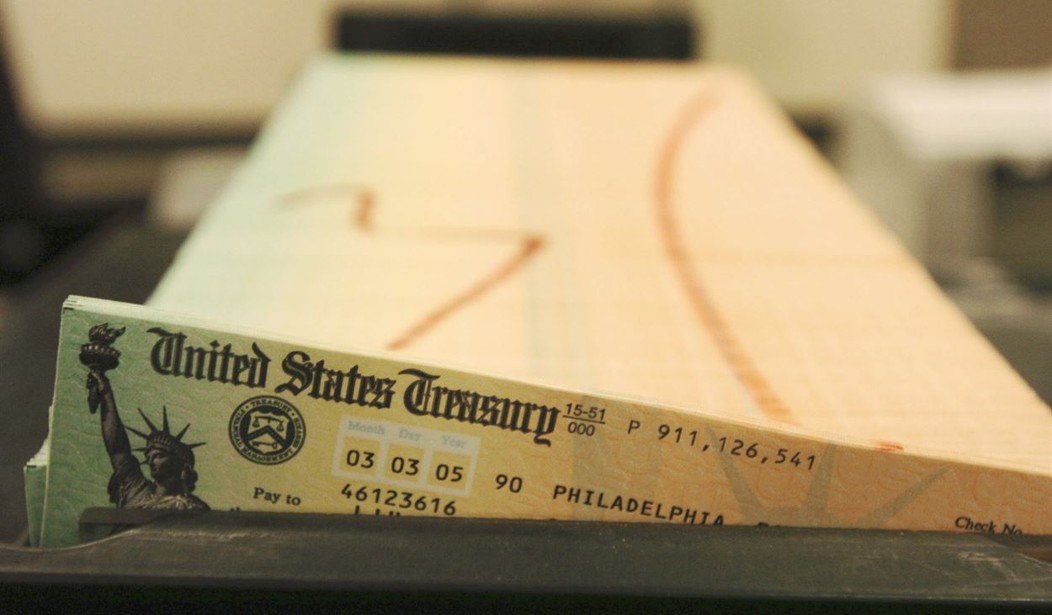It’s no secret that the COVID-19 pandemic exposed the worst tendencies of government officials — especially at the federal level. Forced lockdowns, vaccine mandates, and other policies at the national level and in some states revealed how authoritarian our elected officials and unelected bureaucrats can become. The case of Calvary Chapel in San Jose, Calif., which PJ Media’s Rick Moran wrote about on Sunday, is a prime example.
One of the concepts that we all got used to hearing about during the pandemic was “essential workers.” The idea of the essential worker was that some jobs were so important that those who performed those tasks were free from lockdown. (Of course, I’m inclined to believe that everyone’s job is essential because every job contributes to the economy and provides someone with a paycheck, but what do I know?)
Coupled with those draconian measures was a mentality of “let the government take care of everything.” Washington spent money hand over fist, including for unemployment benefits that were so generous that, for many people, staying at home — not locked down but not working — was more lucrative than contributing to society. Some state benefits contributed to this phenomenon as well.
We’ve already seen the dark side of government pandemic policies in so many ways, but one recent case involving some friends of mine demonstrates how wrongheaded federal mandates and policies were and how something needs to be done about the treatment of some “essential workers.”
I’ve known brothers Brandon and Dustin for most of their lives. Their family became part of my home church when I was still in high school, not long after several families founded the church. Brandon and I even served together on the church staff for many years.
Dustin was born with a condition called Periventricular Leukomalacia (PVL). At age 33, he is high functioning, but he has a low IQ and poor reasoning skills. As a result of his condition, he has been on Social Security Disability Insurance (SSDI) since 2014, yet, because he is able to work in some capacity, he has a job. His SSDI helps him because, in Brandon’s words, “by the government’s own determination in his paperwork, he cannot and would not be able to manage his own money.”
Let me say from the long time that I’ve known Dustin: he’s bright, even in the face of his limitations, and he’s a hard, loyal worker. He also cares deeply for people, so his job helping care for the residents of an assisted living facility is perfect for him.
The way Dustin’s SSDI works in conjunction with his job is that he has a limit of what he can earn outside of his benefits for a monthly period and a limit for a year.
“My family has tried to make sure he stays under the allowable amount he can earn during a given month,” Brandon explained in an email to Rep. Mike Collins (R-Ga.), who represents the district where Dustin lives. “His employer was aware of his situation as well.”
Related: What Has Happened Three Years After ’15 Days to Slow the Spread’?
But here’s where the federal government screwed over the “essential worker.”
“However, due to the government guidance around COVID and their willingness to pay people to stay home, this assisted living facility frequently turned to my brother to work more hours because of the real need that existed for people to work and care for our most vulnerable population,” Brandon continued. “He deeply cares for his residents and never wanted to say no.”
As a result, Dustin went over his earning limit for seven months. That’s seven months in the course of nearly a decade of being careful about not exceeding the limit. On top of that, this excess came at a time when “essential workers” were being upheld (often rightly so) as heroes taking care of those who needed help.
“The government created this situation, and now they are punishing a mentally handicapped individual to the tune of $18,000, which he can pay on a payment plan the rest of his life or have to come up with the money,” Brandon wrote. “He has abided by the rules of this program for the VAST majority of his time on it. He got vaccinated when he otherwise might not have so that he could continue to care for the residents of this assisted living facility. He did everything they asked and now they want him to pay an obscene amount of money.”
Naturally, Brandon is a protective older brother, and he wants to see a resolution to Dustin’s situation.
“This seems to be a gross abuse and misuse of rules to take advantage of an American who has done what he could to serve some of our most vulnerable,” he wrote. “I think it’s outrageous.”
At this point, Dustin is caught between the job he loves and the benefits that have helped him for years. If Dustin is one example, there have to be others who are in his situation. He can’t be the only person the safety net was designed to help who is now having the safety net cut out from under him. Contrast that with those who took advantage of the largesse of pandemic-era and post-pandemic unemployment policy. Shouldn’t those people be the ones forced to pay back what they’ve received from the government?
For months in 2020, everyone told us that we were living in “extraordinary” and “unprecedented” times. Maybe that sentiment should extend to a caring, well-meaning man like Dustin who worked hard to serve people as an “essential worker.” Maybe a little bit of the grace that our beloved government overlords extended to people who didn’t want to work can go to a special-needs adult who did work hard during that difficult time.










Join the conversation as a VIP Member